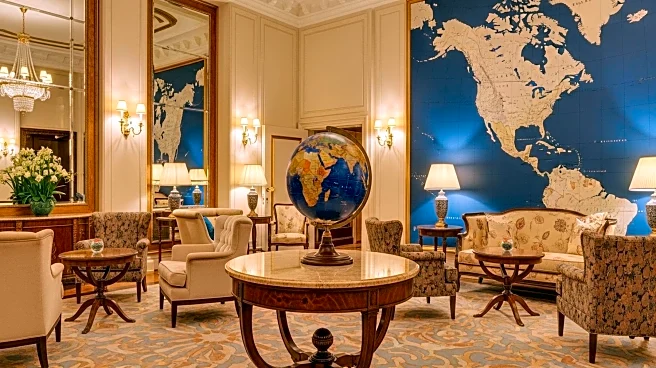What's Happening?
The U.S. hotel industry is currently facing significant challenges due to geopolitical uncertainties, particularly affecting markets that rely heavily on Canadian travelers. Recent U.S. tariff policies and negative rhetoric towards other countries have led to a decline in consumer confidence, impacting the hospitality sector. This decline is evident in reduced hotel demand and a slowdown in international inbound travel, which is crucial for many U.S. markets. According to Aran Ryan, director of industry studies at Tourism Economics, these factors could delay a full recovery to pre-pandemic levels by up to four years. Markets with a high reliance on Canadian visitors, such as border states and popular tourist destinations, are experiencing the most pronounced effects of these geopolitical tensions.
Why It's Important?
The reduction in Canadian travel poses significant challenges for the U.S. hotel industry, particularly in regions that depend on this demographic for business. The decline in international travel demand could lead to long-term financial strain for hoteliers, necessitating strategic adjustments to maintain competitiveness in a global market. The situation underscores the broader impact of geopolitical tensions on the U.S. economy, highlighting the interconnectedness of international relations and domestic industries. Stakeholders in the hospitality sector must navigate these challenges while addressing the potential for sustained reductions in international travel.
What's Next?
Hoteliers may need to implement strategic adjustments to counteract the decline in Canadian travel and international inbound tourism. This could involve diversifying their customer base, enhancing marketing efforts to attract domestic travelers, or investing in new technologies to improve operational efficiency. Additionally, industry leaders might advocate for policy changes to mitigate the impact of geopolitical tensions on travel and tourism. The long-term recovery of the U.S. hotel industry will depend on its ability to adapt to these evolving challenges and maintain competitiveness in a global market.
Beyond the Headlines
The geopolitical tensions affecting the U.S. hotel industry may also have cultural implications, as reduced international travel can limit cross-cultural exchanges and understanding. Furthermore, the industry's struggle highlights the broader economic vulnerabilities that arise from reliance on specific international markets. This situation could prompt discussions on the need for more resilient business models that can withstand geopolitical fluctuations.










